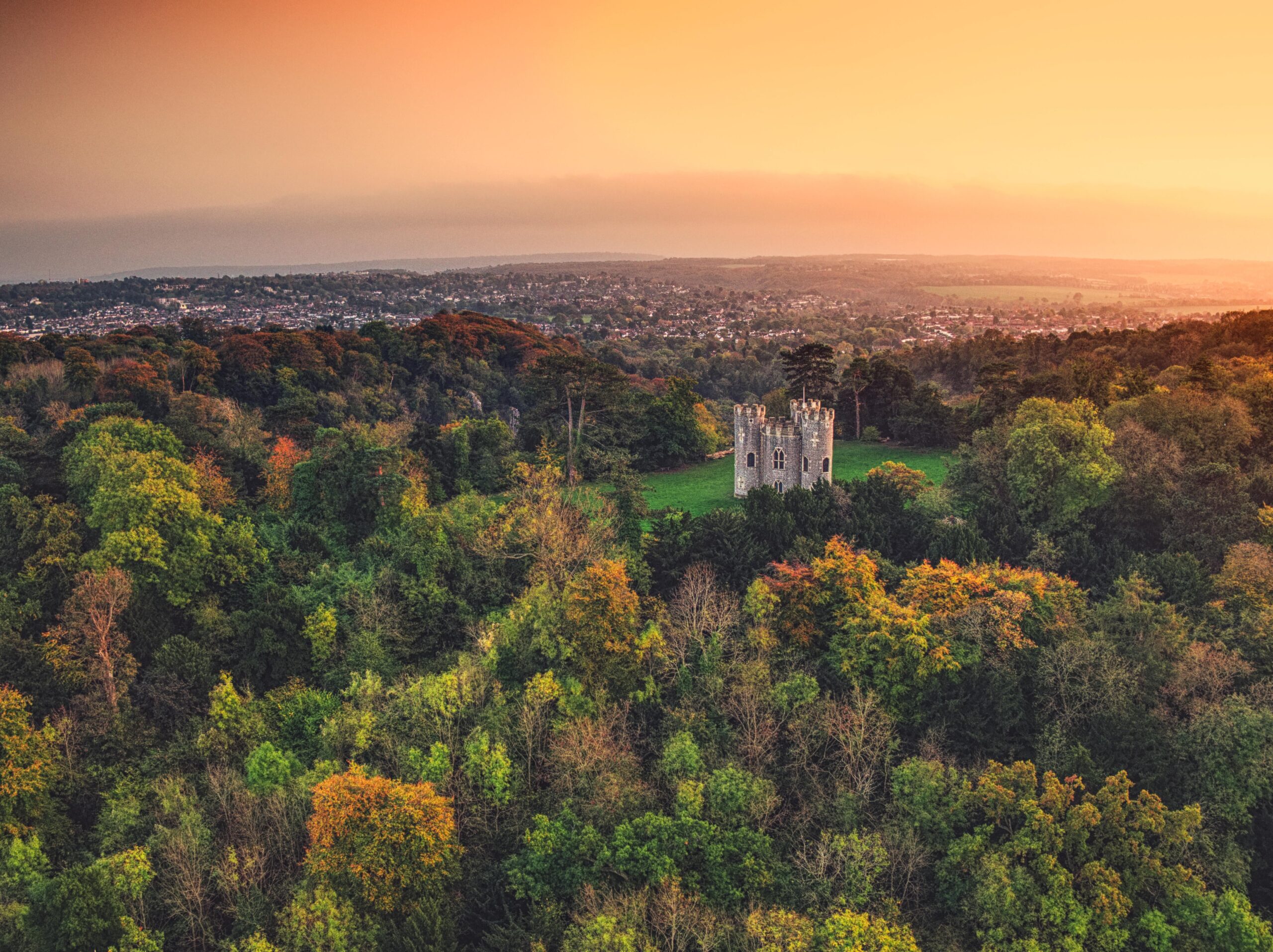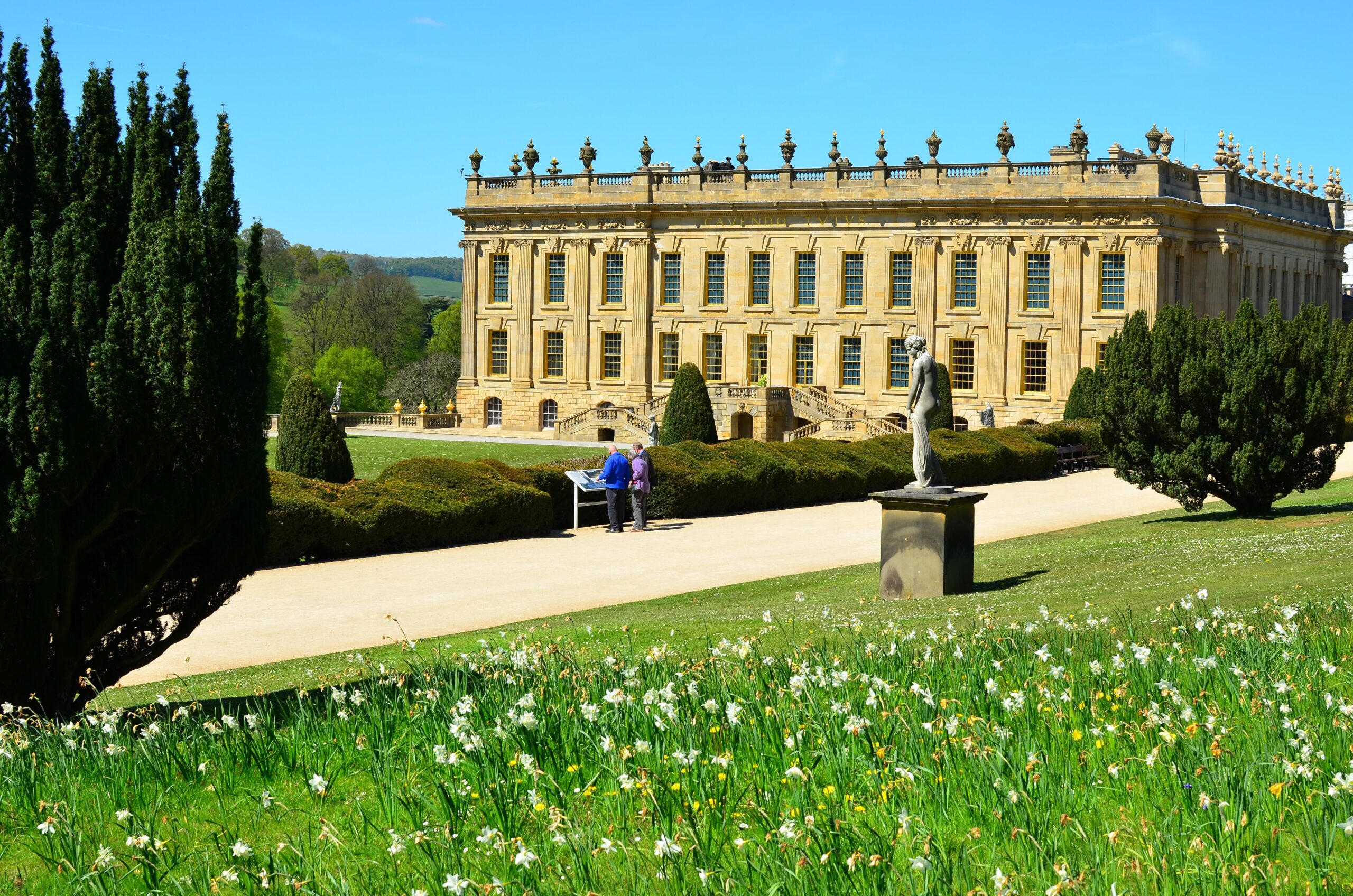Historic parks and gardens play a “crucial” role for UK growth, health and climate action – but are at risk from proposed changes to planning rules, a charity has warned.
A report from the Gardens Trust, a national charity with statutory responsibility to protect and conserve historic designed landscapes, is calling for greater investment and action to protect what it calls the country’s green “crown jewels” of parks, parkland, cemeteries and gardens.
The charity also warned the government is set to launch a consultation on removing a number of statutory consultees from the planning process – organisations that have to be approached in development applications – in England, including the Gardens Trust.
Designed landscapes are a key part of towns and countryside, with more than 1,700 given listed status through inclusion on the register of parks and gardens of special historic interest, the report said.

They would be at threat from developers, housebuilders and highways construction if local planning authorities no longer have to consult the Gardens Trust when considering applications affecting sites on the register, the charity said.
Protected historic designed landscapes range from the gardens at Hampton Court Palace, Chatsworth in Derbyshire and Sissinghurst in Kent, to Birkenhead Park in Merseyside, Highgate Cemetery in London and Stoney Road Allotments in Coventry.
The report from the Gardens Trust warns more than 90 per cent of people are concerned the government’s plan to build 1.5 million new homes could threaten local open green space.
It highlights the value of parks and gardens in saving around £111 million a year in NHS costs and the boost to tourism, with around £2 billion spent in them by overseas visitors in 2023.
Historic gardens, parks and parklands provide habitat for threatened species of lichen, bees and other wildlife in ancient trees, grasslands and lakes.
They can help communities cope with worsening climate change as they store carbon, counter urban heat and help drain away surface water to prevent flooding.
The report also said people in “levelling up” areas significantly valued their local parks and green spaces as a source of local pride.

The Gardens Trust wants to see better recognition of the role these landscapes play in supporting society, greater protection though treating the same as other heritage assets, and investment to ensure they can continue to help communities.
The quantity and quality of expertise available to local planning authorities on historic parks and gardens needs to be improved, with trained conservation officers, planning teams and better-connected external advice, the report urged.
As it faces being stripped of its statutory consultee role, the trust also said it made only 69 objections to planning applications on a variety of issues, including schemes that would have seen a total of 1,135 new homes built on or affecting protected sites.
Objections included the conversion of Norris Castle on the Isle of Wight to a luxury hotel, a telecommunications tower that would impact the setting of Aston Hall in Birmingham, and the development of a commercial ice rink in Bournemouth Pleasure Gardens, the charity said.
It also made many hundreds of responses offering “supportive and constructive advice”.
The trust said its work as a statutory consultee cost the taxpayer less than £44,000 a year, but local authorities would have to spend £10 million a year for the additional staff to do the job, or £30 million if they used consultants.
Gardens Trust chairman John Watkins said: “We should be celebrating that we are a nation of gardens and gardeners, recognised and admired across the world for this special treasure.
“We need new initiatives and greater investment so that historic designed landscapes can be harnessed to fulfil their potential in addressing key challenges of our time such as communities’ health and wellbeing, social cohesion and climate change.
“The impact of removing statutory consultee status from the Gardens Trust is potentially devastating for the conservation and use of parks and gardens nationwide.
“The loss of our input into planning decisions will lead to an increased lack of understanding of key issues by the planning authorities and that lack of understanding will, over time, increase the risk to many valued public parks and treasured designed landscapes throughout the country.
“The government is rightly focusing on building much-needed housing but it needs to also focus on building communities which embrace green spaces, instead of destroying them.”
